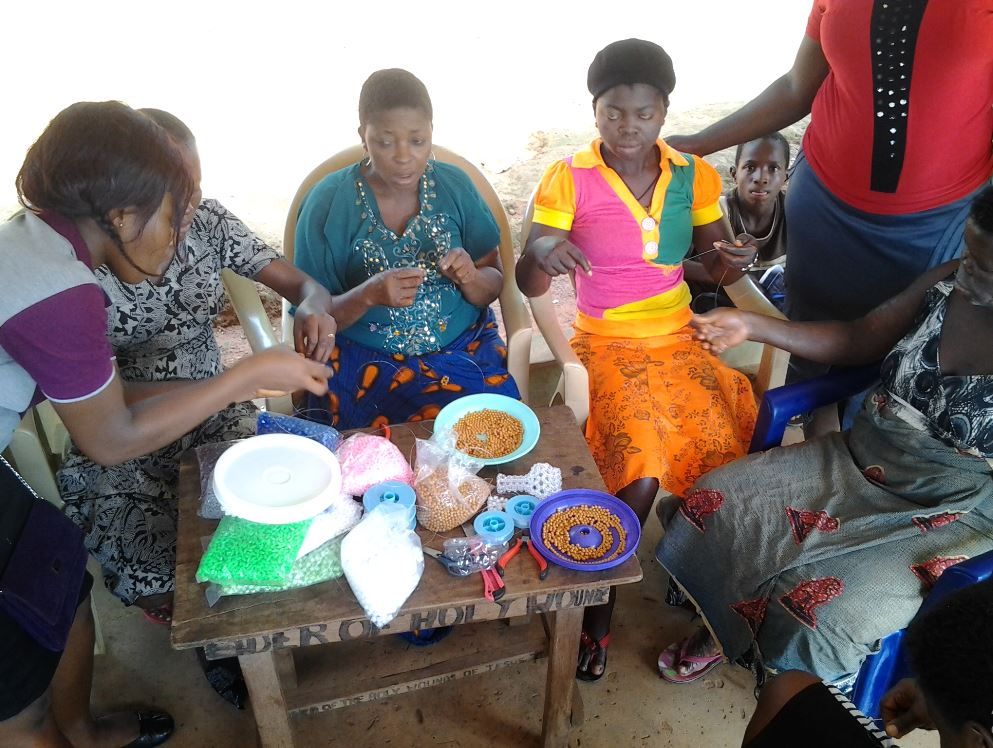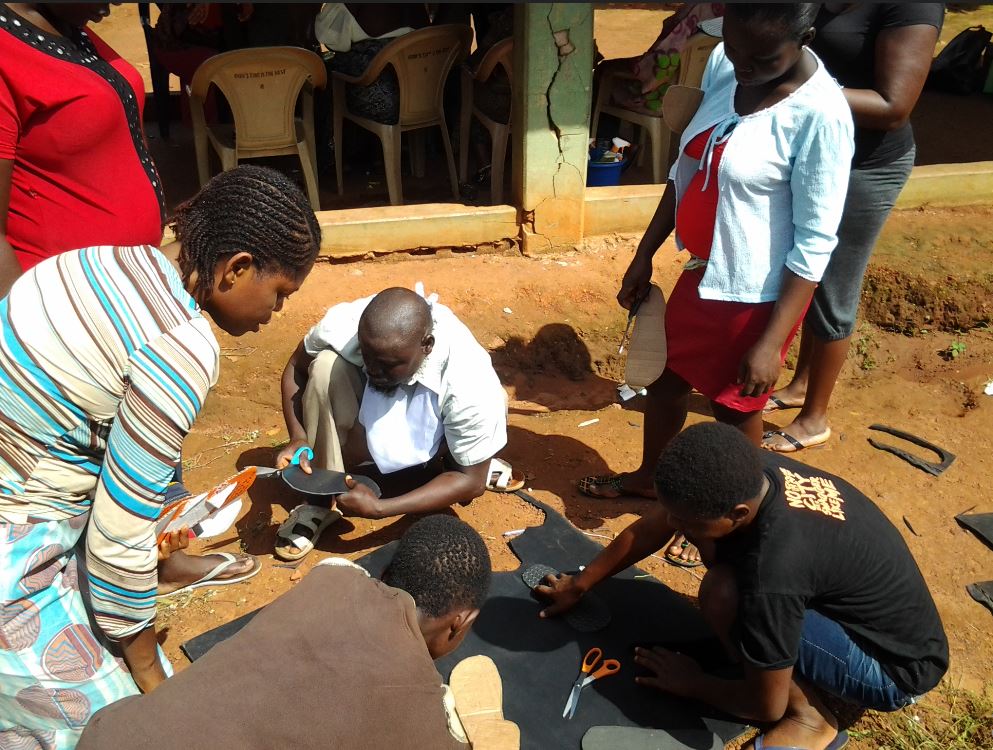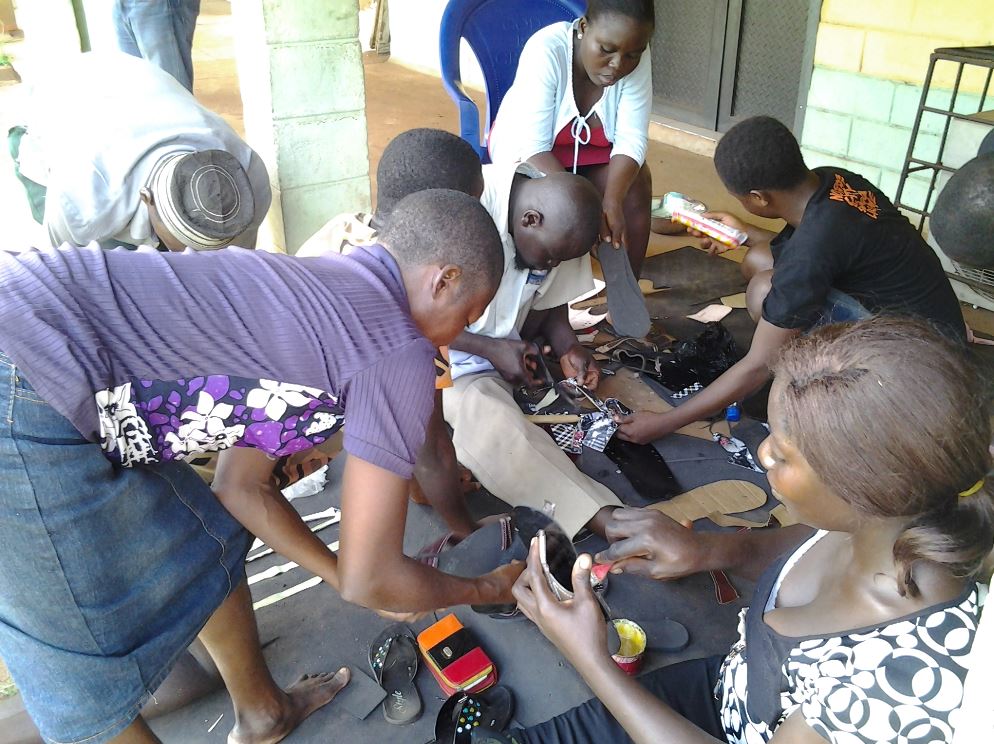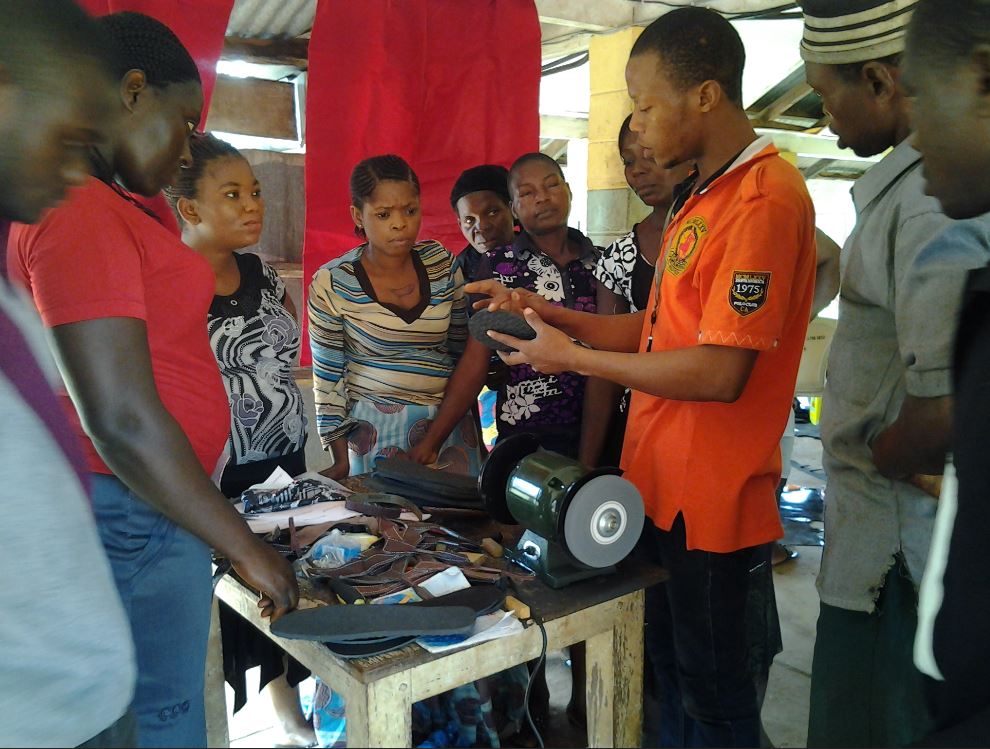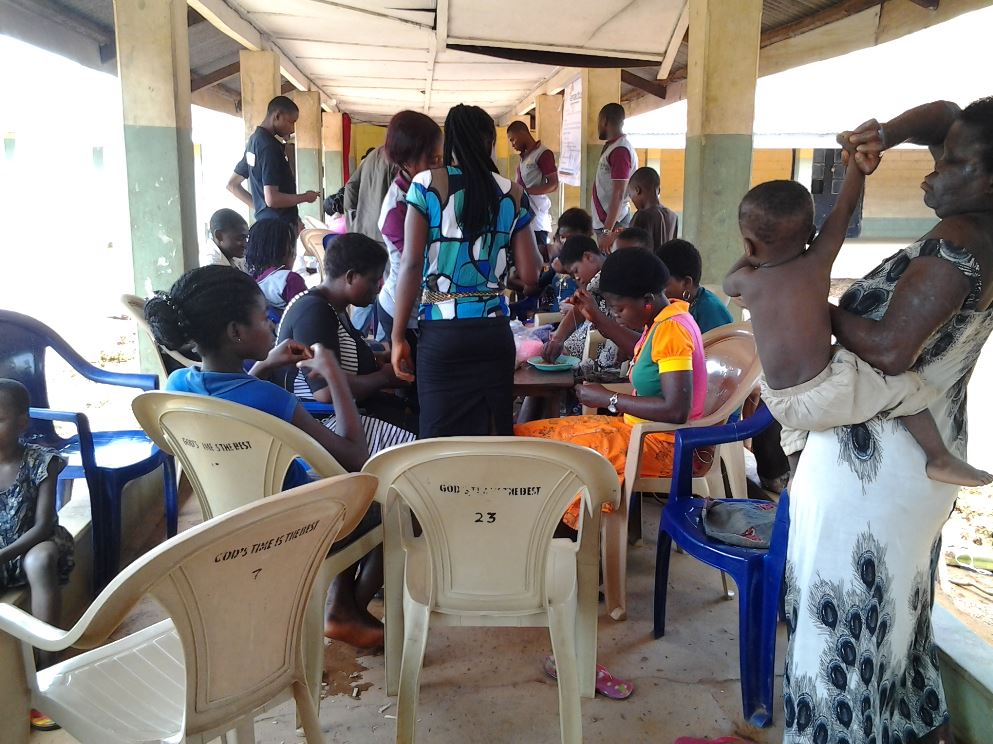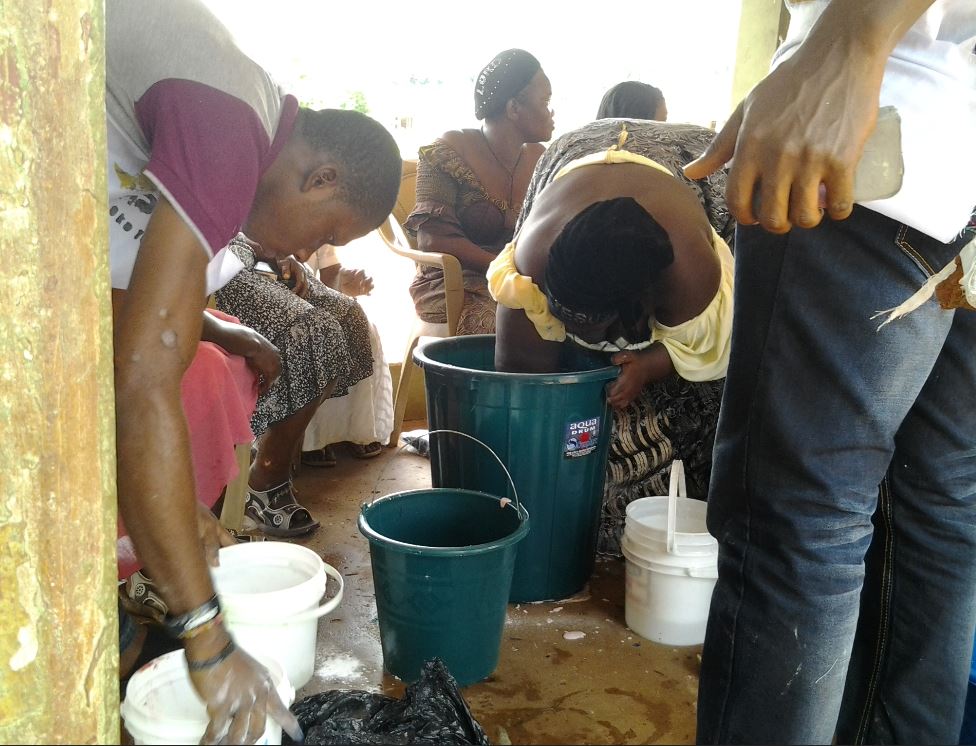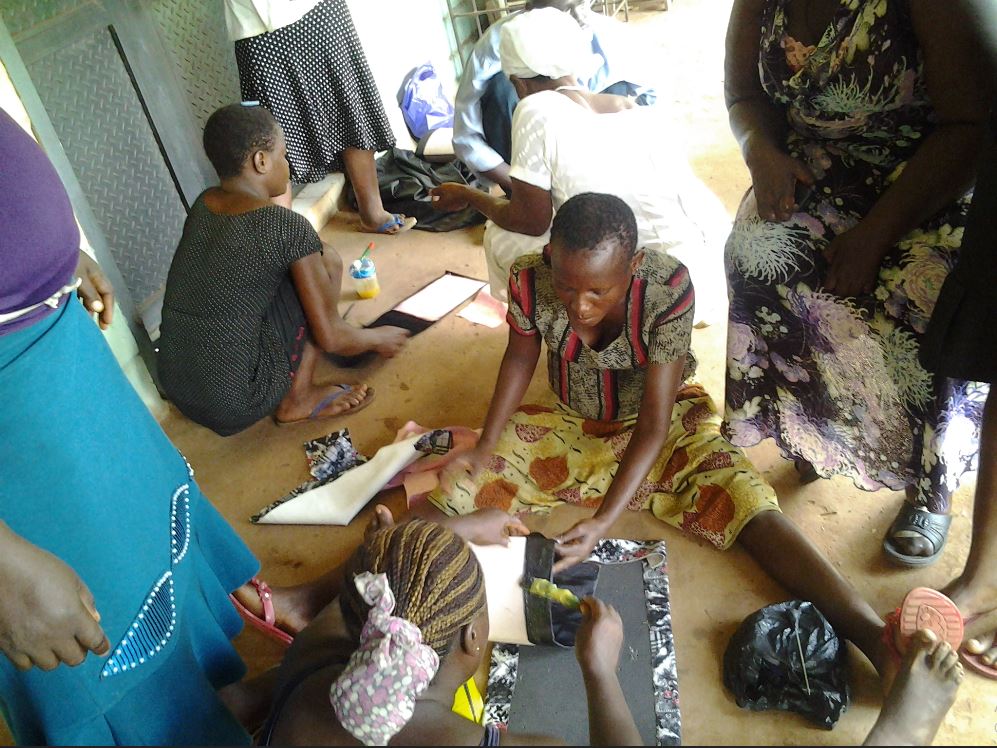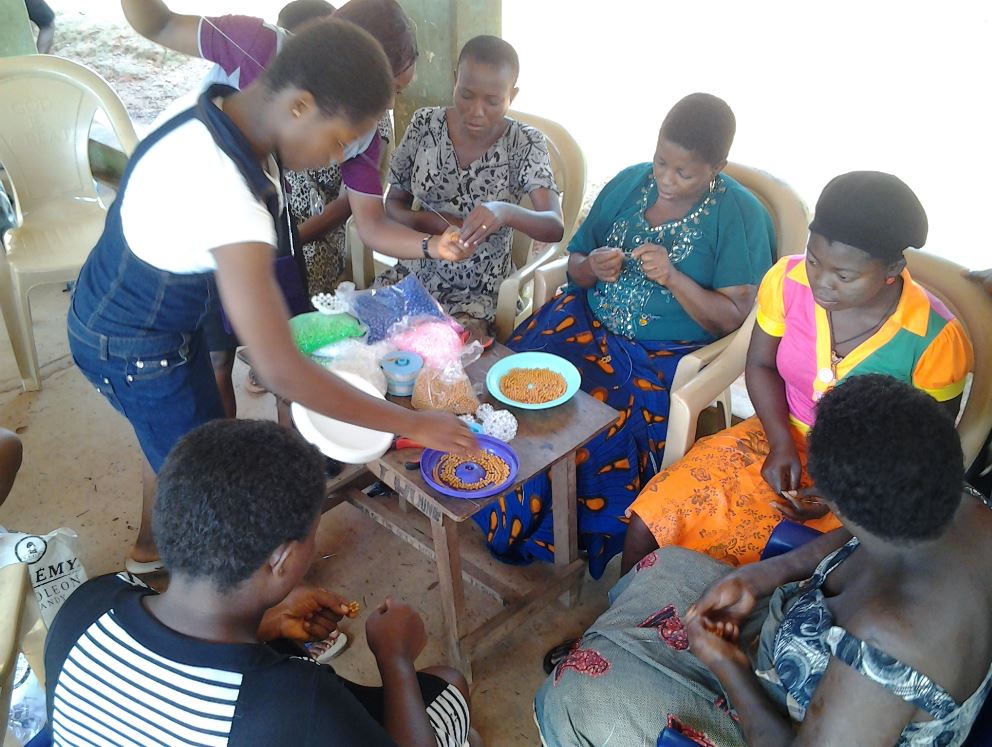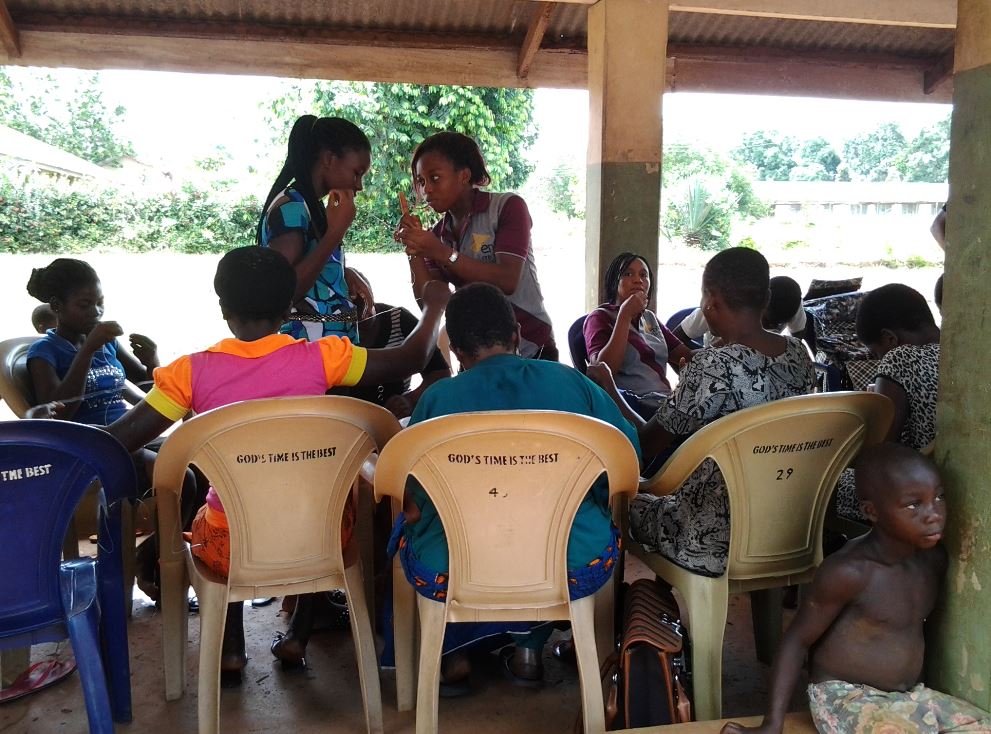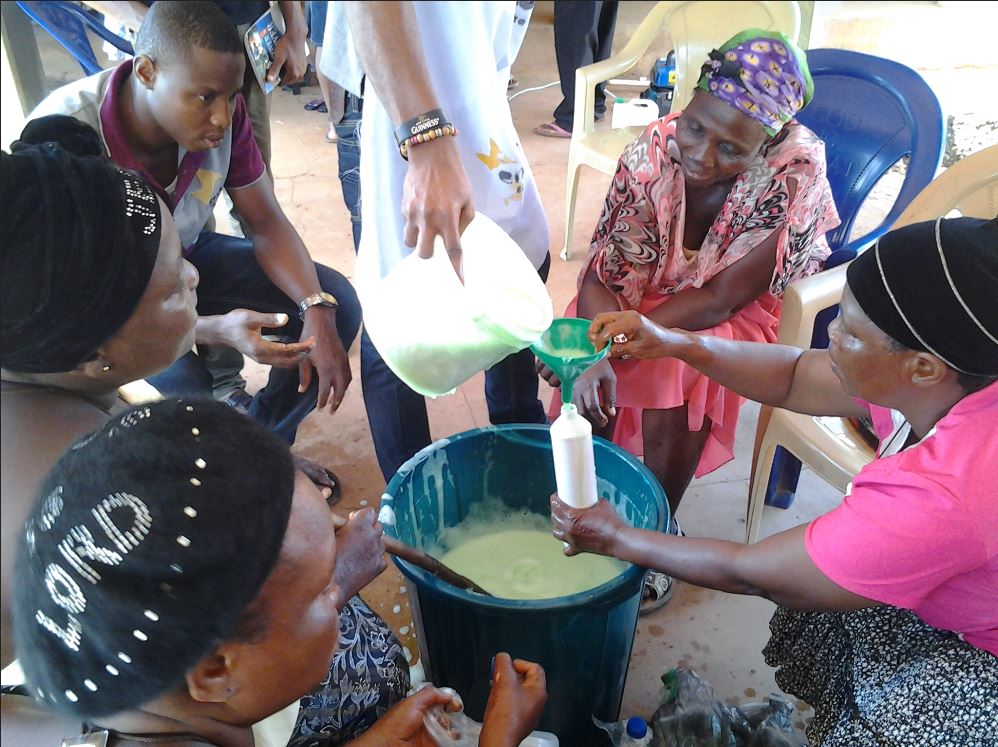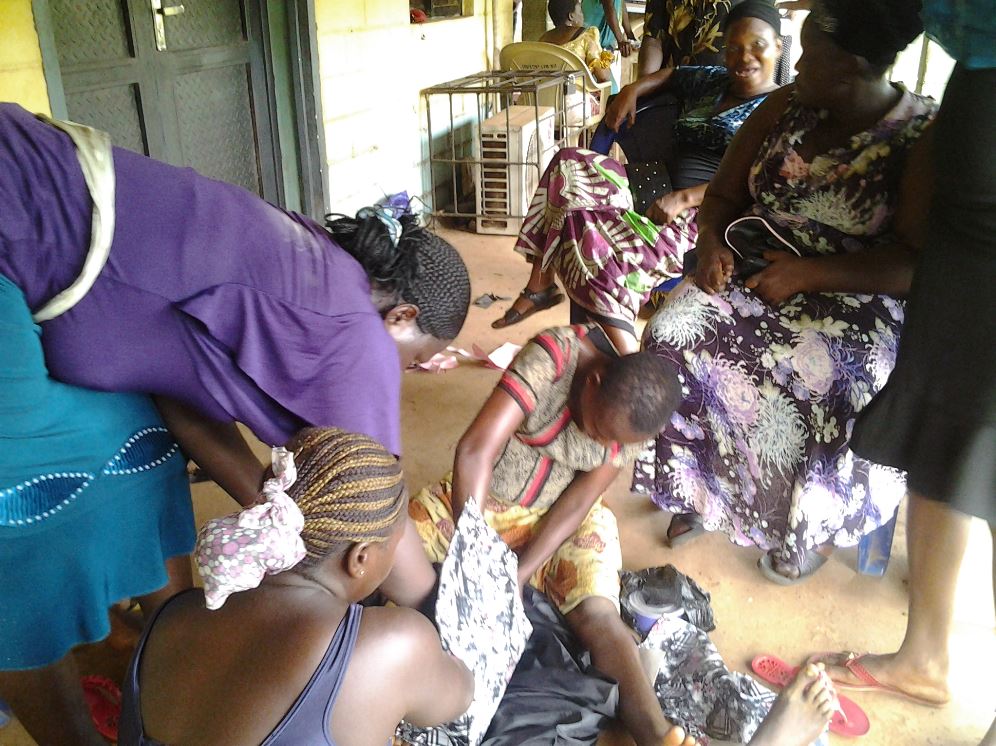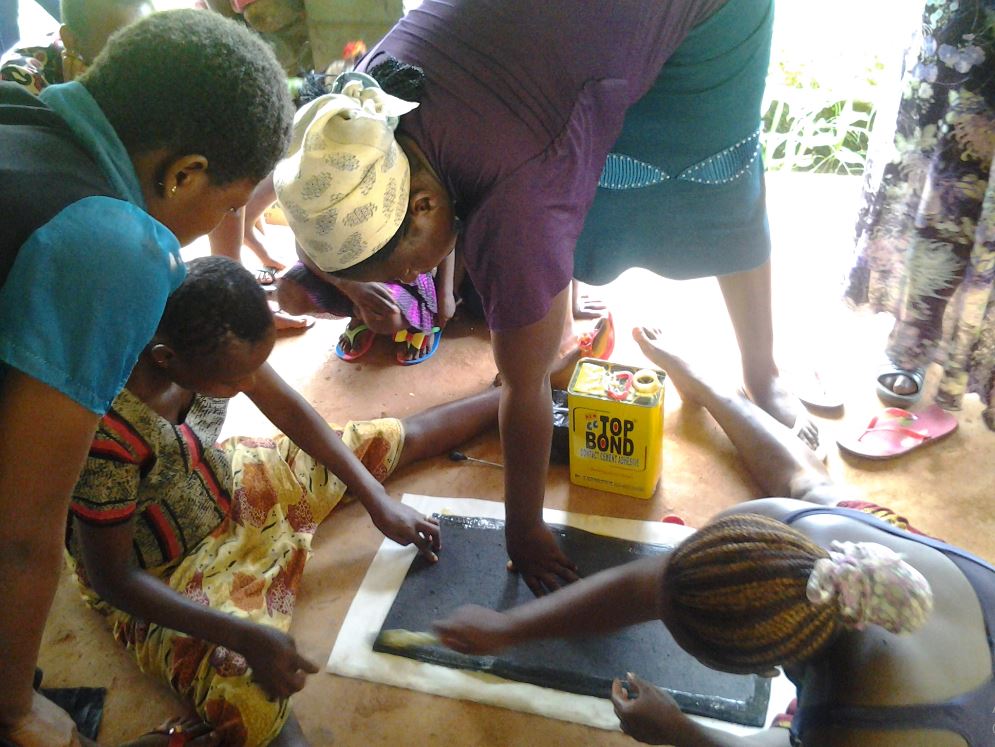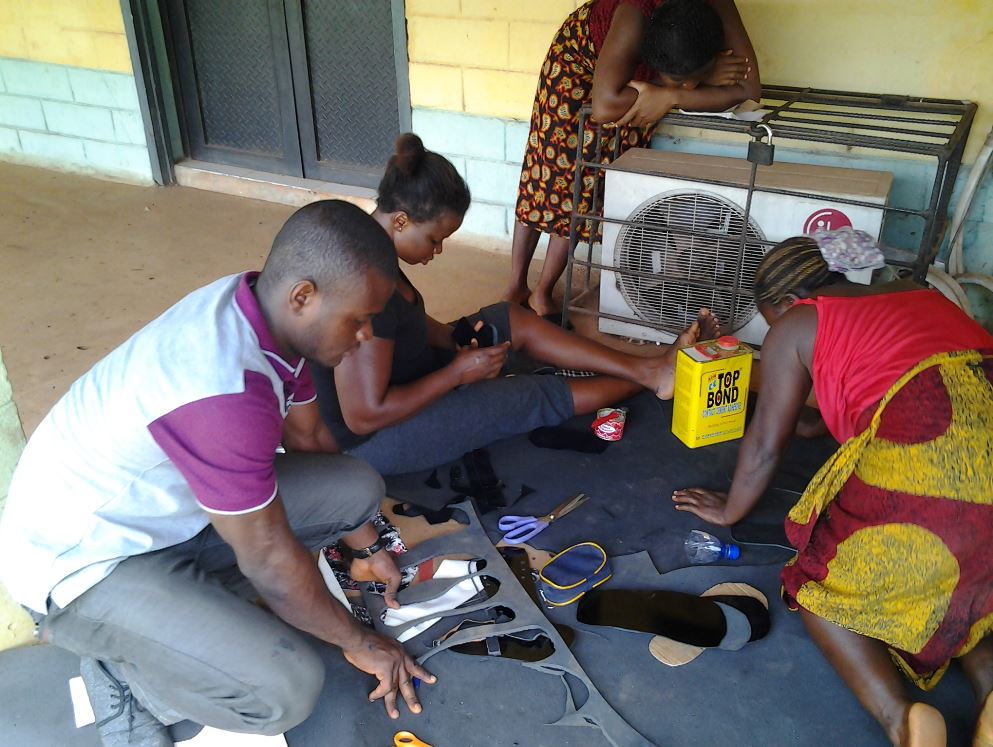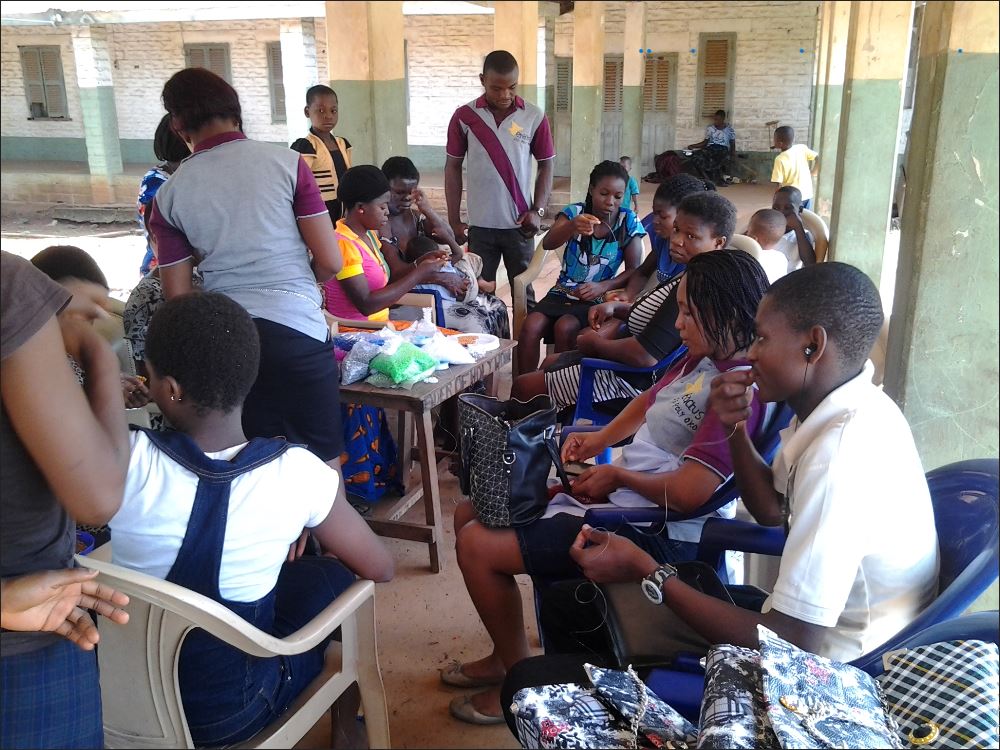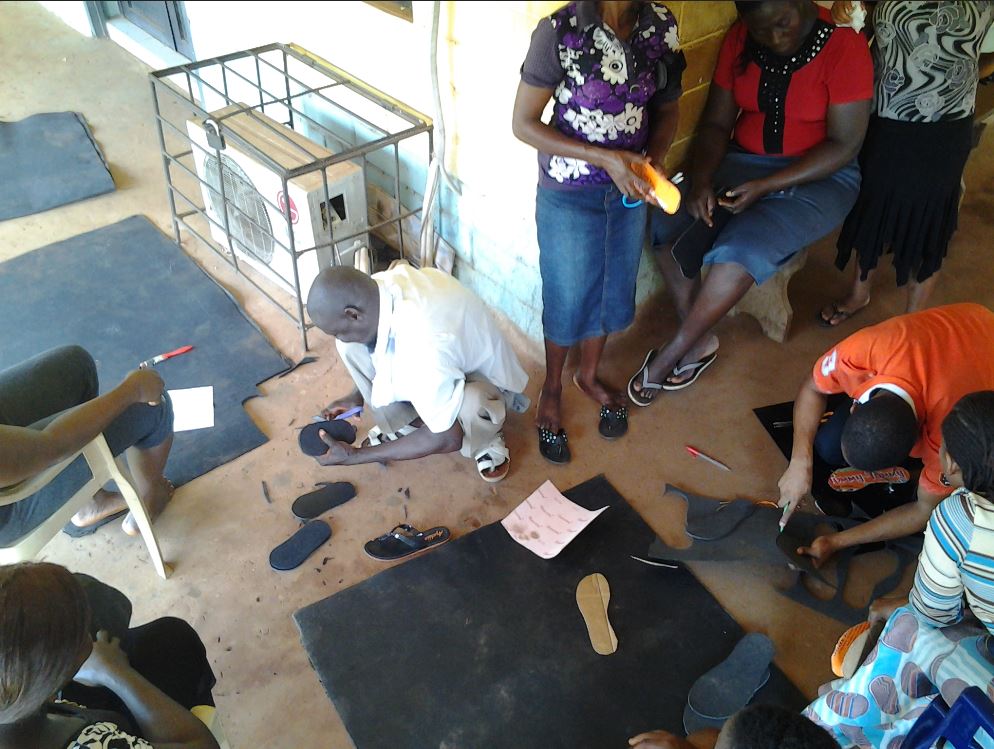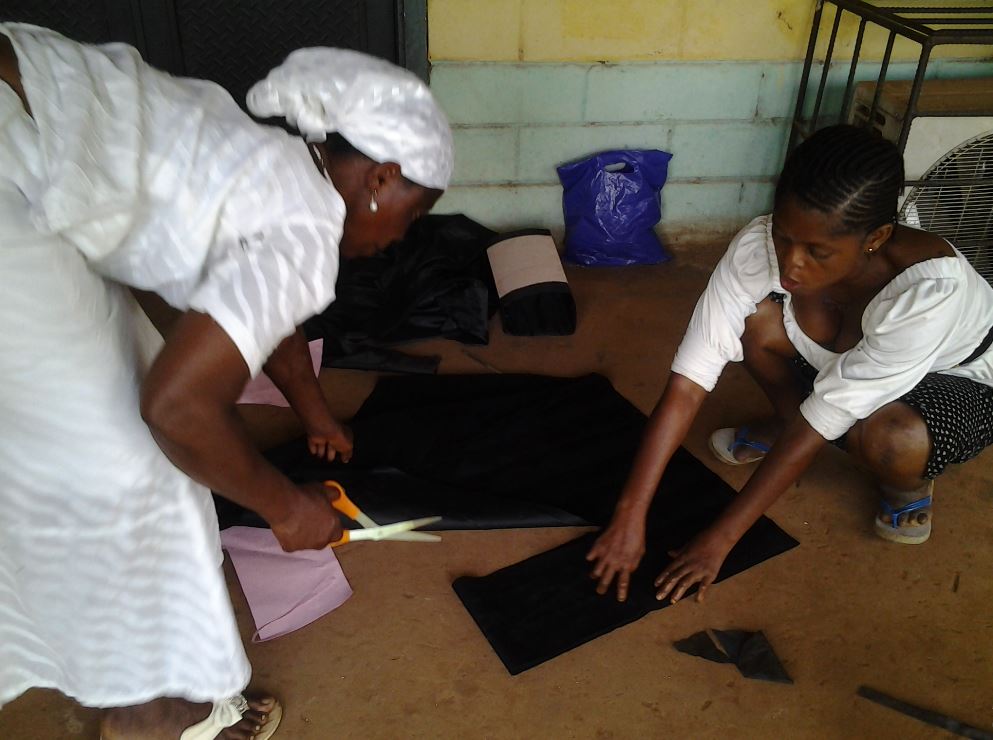
ABILITY IN DISABILITY (AID)
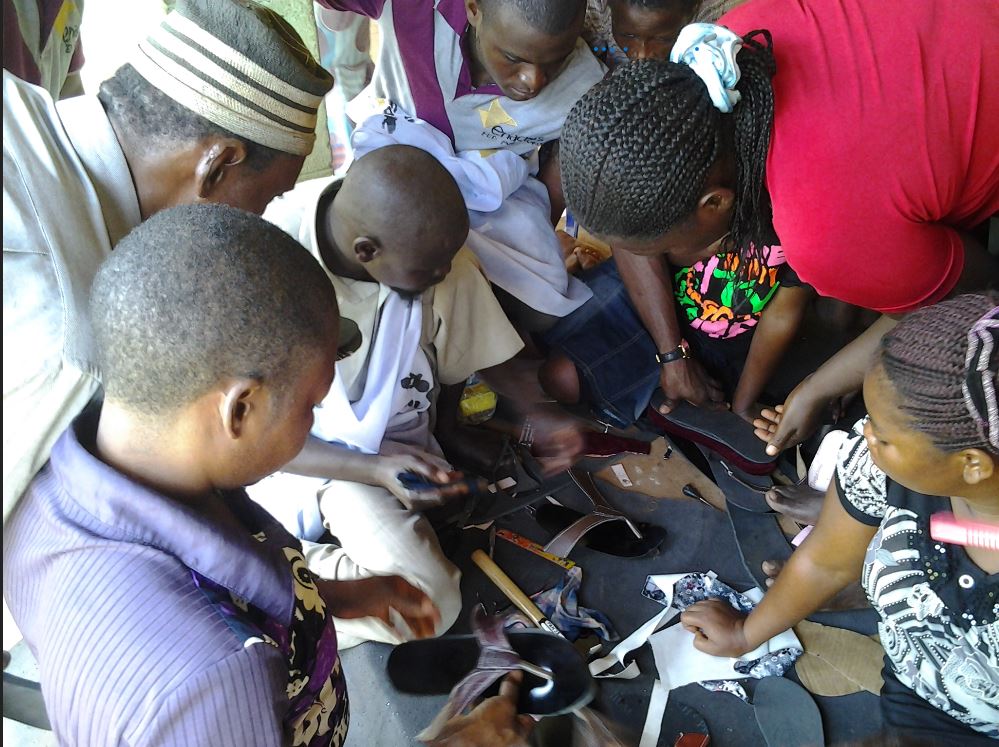
ABILITY IN DISABILITY (AID): Powered by Students in Free Enterprise (SIFE), Federal Polytechnic, Oko in Partnership with Prince Technology and Community Development Foundation
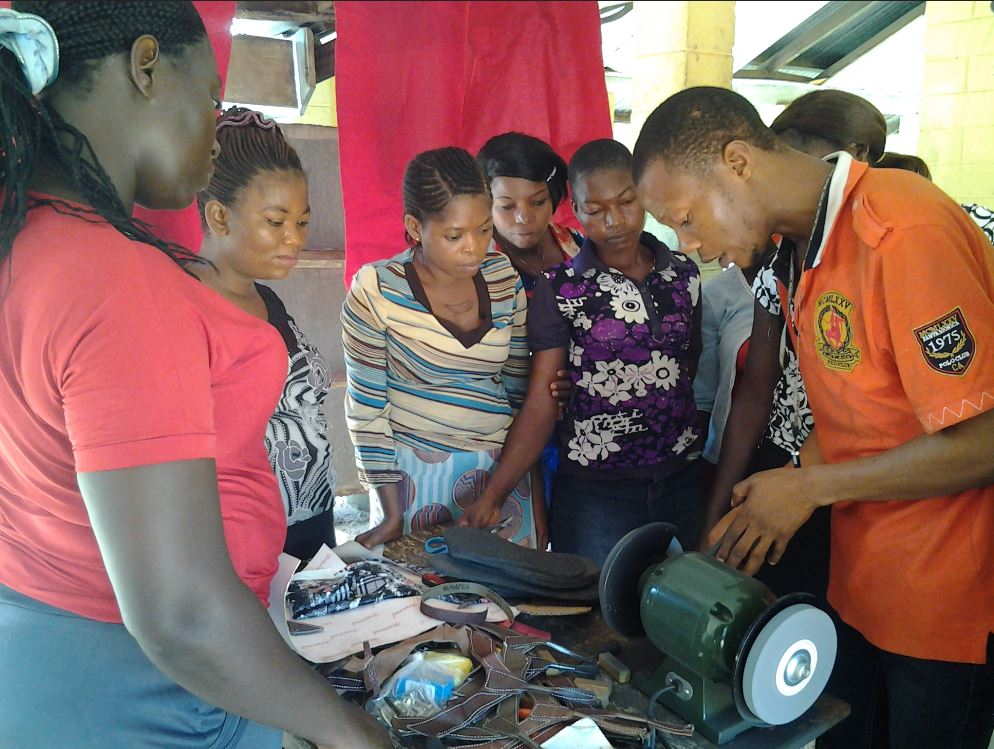
A. Background and Rationale In many Nigerian communities, persons living with disabilities face systemic discrimination, social exclusion, and economic deprivation. Often, these individuals are left with no option but to resort to roadside begging to survive, which not only strips them of dignity but also exposes them to numerous hazards. Project AID (Ability in Disability) was initiated to overcome the issues by finding out the inner capabilities in disabled individuals and helping them unleash their capability. The project focuses on empowering them and their families with functional skills to establish sustainable livelihoods and become productive citizens.
B. Project Vision The central vision of Project AID is to transform how society perceives disability, while actively providing skills, tools, and support to disabled persons and their families. By promoting financial independence and self-worth, the project seeks to reduce dependency and eliminate the need for street begging.
C. Implementation History: 1. Phase One: Oko Community This initial phase took place in Oko Community and focused on small-scale intervention. Some beggars and disabled persons were identified and trained in basic business skills; like shoe and leather works, bead making, etc.
2. Phase Two – Leprosy Colony, Orji River, Enugu State The second phase was more expansive and took place at the Leprosy Colony in Orji River, Enugu State where many residents are isolated due to the stigma associated with leprosy. Their primary means of survival is begging, which involves traveling from the colony to various towns in Enugu State and Anambra State. Through site visits and interviews, the project team identified core challenges and grouped participants according to their capabilities. Importantly, their family members were also included in the training process to ensure holistic and sustainable empowerment.
D. Skills Training and Vocational Empowerment Project AID provided hands-on training in various skills based on participants’ physical abilities and interests. These included:
- Soap and Car Wash Production
- Paint Production
- Shoe and Leather Works
- Bead Making
- Poultry Farming
- Basic Business Management and Sales Skills
Family members of disabled persons were actively trained alongside them to enhance support systems and create a shared economic responsibility within households. This approach also ensures that businesses can thrive even if the disabled individual faces physical limitations.
E. Objectives of the Project
- To reduce roadside begging by empowering persons with disabilities and their families with practical skills for income generation.
- To promote financial independence and self-sufficiency among the disabled community.
- To increase their self-esteem and eliminate the feelings of inferiority and societal rejection.
- To contribute to national development through increased productivity and participation in the local economy.
- To foster inclusive growth by involving the family units in capacity-building and entrepreneurship.
F. Challenges Identified
- The prevalence of street begging as a norm among disabled persons.
- Deep-seated societal stigma, leading to low self-worth and exclusion.
- Daily exposure to hazards and exploitation during begging activities.
- Lack of vocational training centers targeting marginalized groups.
G. Sustainable Development Goals (SDGs) Addressed This project significantly contributes to achieving several of the United Nations Sustainable Development Goals (SDGs):
- SDG 1 – No Poverty: By providing income-generating skills and small startup support, the project helps lift individuals and their families out of poverty.
- SDG 3 – Good Health and Well-being: Reducing the need to beg on the streets lowers exposure to health risks and improves overall well-being.
- SDG 4 – Quality Education: Though non-formal, the skill acquisition program constitutes lifelong learning and functional education.
- SDG 5 – Gender Equality: Both men and women were empowered equally, ensuring inclusive participation regardless of gender.
- SDG 8 – Decent Work and Economic Growth: The project encourages entrepreneurship, job creation, and economic inclusion.
- SDG 10 – Reduced Inequality: By targeting marginalized groups and promoting social inclusion, the project fights systemic inequality.
- SDG 11 – Sustainable Cities and Communities: The initiative contributes to creating inclusive and resilient communities where no one is left behind.
H. Conclusion Project AID (Ability in Disability) represents a shift from sympathy to empowerment, from charity to capacity-building. By focusing on what people can do instead of what they cannot, the project gives persons with disabilities and their families the dignity of work, the power of self-reliance, and a renewed place in society. As a model for inclusive development, this project stands as a testament to the idea that true progress comes not from isolating the vulnerable, but from empowering them with the tools to thrive.
For video presentations of some of Prince’s technological innovations visit the link below: https://princetechfoundation.com/amb-prince-nwankwo Contact: Phone/WhatsApp: +2348063572001, E – mail: princetechfoundation@gmail.com Website: www. princetechfoundation.com
